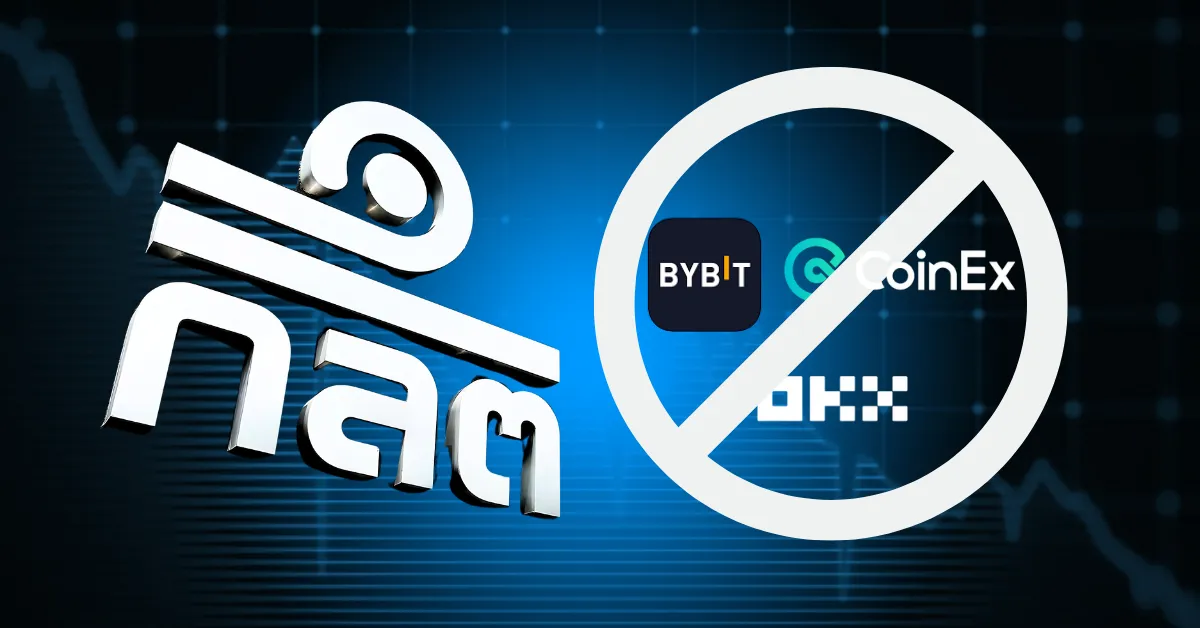
The Thailand Securities and Exchange Commission (SEC) has announced that it will block access to some of the world’s most popular crypto exchanges that don’t have the right licenses. From June 28, Thai crypto traders will no longer be able to use Bybit, CoinEx, OKX, 1000X, and XT.com. This decision is all about protecting investors and stopping shady money activities.
According to the Thailand SEC, these exchanges are not licensed under the country’s Digital Asset Business Act. This means they’re not following the rules that make sure investors are safe.
The SEC says these unlicensed platforms could be used by fraudsters to hide illegal money or scam people without them knowing.
To deal with this problem, the SEC has filed charges against these exchanges with the Economic Crime Suppression Division. They also asked the Ministry of Digital Affairs to block these websites completely, so people in Thailand can’t visit or trade on them at all.
One of these exchanges, Bybit, has already faced big security troubles. Recently, hackers stole about $1.5 billion worth of Ethereum tokens from Bybit, making everyone more worried about the risks of unlicensed platforms.
The SEC believes that this kind of security problem is one more reason why it’s so important for traders to use only licensed platforms.
Meanwhile, OKX, one of the exchanges that’s about to be blocked, said it’s willing to work with the SEC and other authorities. “We believe that working with regulators is essential to the future of the digital asset industry,” said an OKX spokesperson.
Recently, the Thailand SEC is telling everyone to move their money away from these unlicensed exchanges as soon as possible.
“Investors are urged to promptly secure their assets on these platforms before the impending access restrictions,” the SEC said in a statement.
No, Thailand is not crypto tax-free. Gains from crypto are generally subject to personal income tax, although VAT has been exempted on certain crypto transactions.
The Securities and Exchange Commission (SEC) is the primary regulator for digital assets in Thailand, working with the Ministry of Finance and Bank of Thailand
Dogecoin (DOGE) Holds Its Ground as Pepeto Gains Momentum Fast in 2025 Dogecoin (DOGE) continues…
Solana is grappling with a critical price threshold at $169, reflecting a 6.5% decline in…
The XRP community is on high alert as the Ripple vs U.S. Securities and Exchange…
The cryptocurrency market has seen a strong rebound over the past 24 hours, with several…
XRP is once again under pressure as bearish signals continue to build on both weekly…
The hype around meme coins is changing again. As Pengu gains significant momentum, most investors…